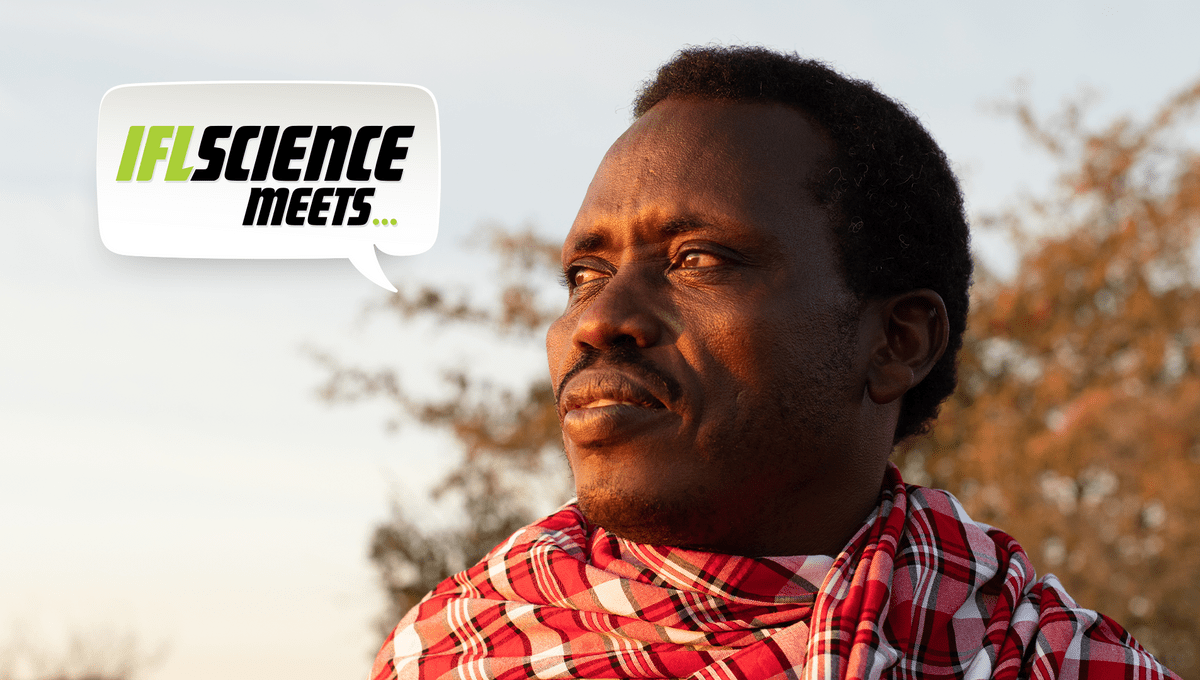
Grassroots conservationist and programme coordinator for the Ujamaa Community Resource Team (UCRT), Dismas Partalala Ole Meitaya, joins a select and prestigious few names in the running for the 10th Tusk Award for Conservation in Africa. Indigenous communities are at the forefront of his work, which has been instrumental in securing land rights for the local Hadzabe community, Tanzania, with 100,500 hectares (248,000 acres) of land secured by law since 2011.
“When I discovered these communities needed help, I knew I had to be the one,” he said in a release. “If I do this, then I can I die knowing I did something in this world.”
We caught up with Dismas Partalala Ole Meitaya to find out more about his conservation work and how it feels to be a nominee for the Tusk Conservation Awards 2022.
How does it feel to be selected as a finalist?
I am very humbled to be selected as a finalist. This is a great honour not only for me but for Indigenous communities and my fellow UCRT teammates. The success of today was very much a combined effort of a team and of communities working together to protect their lands.
What is the most important thing you’ve learned from your work in conservation?
I have learnt that inclusive conservation is the future. Communities are a vital resource we do not use to advance and promote conservation. Conservation is a costly process and for African countries with limited resources, it’s hard to finance conservation as needed.
COVID-19 is a prime example of how lack of funding has significantly impacted the ability to effectively conserve wildlife areas. Therefore, Indigenous and local communities could offer a more sustainable solution through the role they already play in supporting conservation. However, they need recognition for their efforts, but also they need the right support to enhance conservation.
What advice would you give to someone with a goal to working in a similar field?
Build trust and a relationship with whomever you work with. Commitment and hard work will always produce the best results. The success of conservation initiatives depends on whom you work with, how you work, and using passion as your drive.
What changes do you hope to see in the conservation and management of wild animals in the future?
Indigenous communities have coexisted with wildlife for time immemorial. Since their livelihoods depend on healthy environments, protecting their land and natural resources is in their best interest. However, ensuring that these communities have the right to manage sustainably and benefit from conserving their communally owned lands is critical.
The changes I hope to see in the future are more inclusive conservation approaches that recognise and enhance traditional livelihoods that support wildlife conservation and utilise local knowledge in conjunction with scientific approaches to keeping wildlife safe and well.
Any particularly proud moments from your time in the field?
A proud moment is seeing what a small ancient hunter-gatherer community, a strong team, and determination can achieve in conservation. Over the last several decades, Hadzabe hunter-gatherer communities have lost approximately 90 percent of their land – critical wildlife habitat and forest – from encroachment and land conversion to agriculture and grazing. When the community expressed concern over losing more land and needing support with their rights, that’s when together we developed a unique model for Indigenous-led conservation, which secures a communal land title deed known as a “Certificate of Customary Right of Occupancy” (CCRO).
This conservation model protects Indigenous peoples’ territories and culture. Since that first CCRO in 2011, we have scaled this model to help Indigenous communities across northern Tanzania, which today secures more than 1.4 million hectares [3.5 million acres] of land spanning across the critical ecosystem of northern Tanzania – bringing connectivity for wildlife beyond and between protected areas.
The winner of the Tusk Award for Conservation in African will be announced during a ceremony at Hampton Court Palace on November 1, along with the recipient of the Prince William Award for Conservation and the Tusk Wildlife Ranger Award.
Source Link: IFLScience Meets: Grassroots Conservationist And Tusk Awards Nominee Dismas Partalala Ole Meitaya